Questionrespected sir,last time ur advice helped me alot.so plz plz help me this time also.sir,my labrador male dog is 6 months old.i am giving him puppy feed ,plz answer my following questions:-
1.should i give him adult dog food or not?
2.if yes then please tell me quantity?
3.his current weight is 18 kg .is he underweight?
4.if yes then plz tell em how should i change his diet scedule?
5.i am worried about his hose trainig.its our fault we could not take him in morning for walks .so he do potty on roof at aparticular place.i wnat him to go out n do potty.how to train him.as we dont know his potty time?5
5.what about rabese vaccination.he got rabisine r vaccine shot at 3 month age and secong at 6 plz tell me in detaila bout vaccination scedule.thanks alot.u r doing really agreat job
Answer1.should i give him adult dog food or not?
Yes, start mixing some in with the puppy chow, increasing it until after about a week it is all adult food.
2.if yes then please tell me quantity?
Start with about what you are feeding of the puppy chow.
3.his current weight is 18 kg .is he underweight?
That sounds a little on the light side.
4.if yes then plz tell em how should i change his diet scedule?
Evaluate the dog as illustrated in this link, http://www.longliveyourdog.com/twoplus/RateYourDog.aspx You may want the vet to confirm your judgment. Adjust the dogs food and exercise as needed to reach its ideal body condition. You can also cut back to one meal a day.
5.i am worried about his hose trainig.its our fault we could not take him in morning for walks .so he do potty on roof at aparticular place.i wnat him to go out n do potty.how to train him.as we dont know his potty time?5
I am giving you the same instructions I give people with a new puppy. What you need to do is about the same allowing for him going longer after eating and drinking before needing to go out. It will be important to let him out of the crate and take him outside the first thing in the morning.
Much of housebreaking is not training the puppy, but making it easier for your puppy, you, and your carpet while its body to catches up to its instincts. At around 8 weeks when the puppy goes to its new home, the time from when it realizes it has to go, and when it can't wait any longer is a matter of seconds. Only time will fix that. You can hardly be expected to be attentive enough to avoid all accidents. There is no sense punishing the puppy for your inattention. It is not fair to punish you either, but you still have to clean it up if you didn't have the puppy outside in time.
Housebreaking starts before you get home with the new puppy. If you don't have a crate, buy one. I prefer the more enclosed, den like plastic ones. Skip the bedding. At first it gets wet, and later it can be chewed into choking hazards. A wire grid in the bottom will help keep the puppy up out of accidents at first. They are available with the crates, but expensive and hard to find. A piece of closely spaced wire closet shelving from a home supply place is cheaper. I am now using a plastic vegetable bin with plenty of holes drilled in the bottom. It helps block off part of the crate for the smaller puppy. If you already have a metal crate, covering it may help. Just make sure you use something the puppy can't pull in and chew. Dogs that start out in crates as little puppies, accept them very well. Never leave an unattended puppy loose in the house. If nobody can watch it, put it in the crate. I suggest letting the dog have its crate all its life. A crate needs to be just big enough for a dog to stretch out in.
A dog that has not been crated since it was little, may take some work. Start out just putting its toys and treats in the crate. Praise it for going in. Feed it in the crate. This is also an easy way to maintain order at feeding time for more than one dog.
Choose a command and spot you want it to use. The less accessible to strays, the less chance of serious disease. If it is a female, choosing a non grassy spot will avoid brown spots later. When you bring it home, take it to the spot and give it the command in a firm, but friendly voice. Keep repeating the command and let the puppy sniff around. If it does anything, praise it. Really let it know what a good dog it is and how much you love it, and maybe a treat. Note, being out there not only means you can praise it, but it also keeps it from being snatched by a hawk. If it doesn't go, take it inside and give it a drink and any meals scheduled. A young puppy will need to go out immediately afterward. Go to the spot and follow the above routine. Praising it if it goes is extremely important. If it doesn't go, take it back inside and put it in its crate and try again soon. Do not let it loose in the house until it does go.
At first it is your responsibility to know and take the puppy out when it needs to go. It needs to go out the first thing in the morning, after eating, drinking, and sleeping. If it quits playing, and starts running around sniffing, it is looking for a place to go. Take it out quickly. You will just have to be what I call puppy broke until it is a little older. How successful you are depends on how attentive you are.
By the time most dogs are about 3 months old, they have figured out that if they go to the door and stand, you will let them out. The praise slowly shifts to going to the door. Some people hang a bell there for the dog to paw. If your dog doesn't figure this out, try praising it and putting it out if it even gets near the door. When you catch it in the act, give it a sharp ''Ah, ah, ah!'' and take it out. Clean up accidents promptly. I mostly keep the little puppies out of the carpeted rooms. Still I need the can of carpet foam sometimes. First blot up all the urine you can with a dry towel. Keep moving it and stepping on it until a fresh area stays dry. A couple big putty knives work well on bowel movements. Just slide one under it while holding it with the other. This gets it up with a minimum of pushing it down into the carpet. This works with even relatively soft ones, vomit, dirt from over turned house plants, or anything else from solids to thick liquids. Finish up with a good shot of carpet foam. Note, do not let the puppy lick up the carpet foam. Once the dog is reliably housebroken, your carpet may need a good steam cleaning.
Many people strongly strongly push cleaning up all evidence of past accidents. I am slower to suggest that. Dogs will return to the same spot if they can find it. When you see one sniffing the spot, that is your clue to run it out.
5.what about rabese vaccination.he got rabisine r vaccine shot at 3 month age and secong at 6 plz tell me in detaila bout vaccination scedule.thanks alot.
Dogs need shots for several things other than rabies. Often they are given a combination shot called DLCPP several times before 6 months. If he hasn't been vaccinated for parvo and some other things before this, he should be now. Any shots he has at 6 months should only need to be repeated annually along with a check up.
u r doing really agreat job Thank you. I love dogs and try to help them as muchas I can.

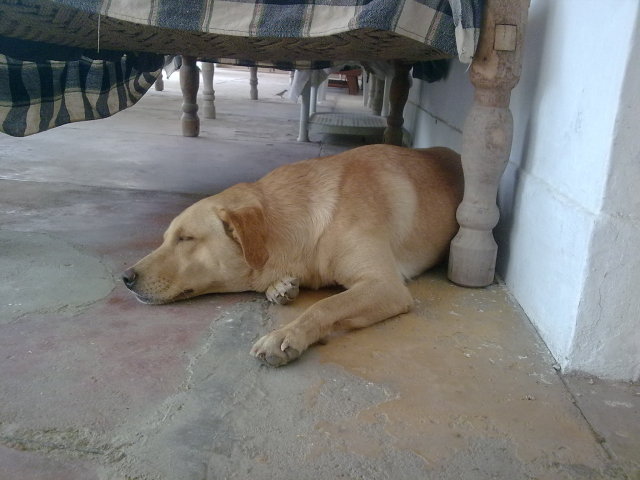 confrmation of lab retriever breed
Questionmy lab
QUESTION: sir can u possibly asur
confrmation of lab retriever breed
Questionmy lab
QUESTION: sir can u possibly asur
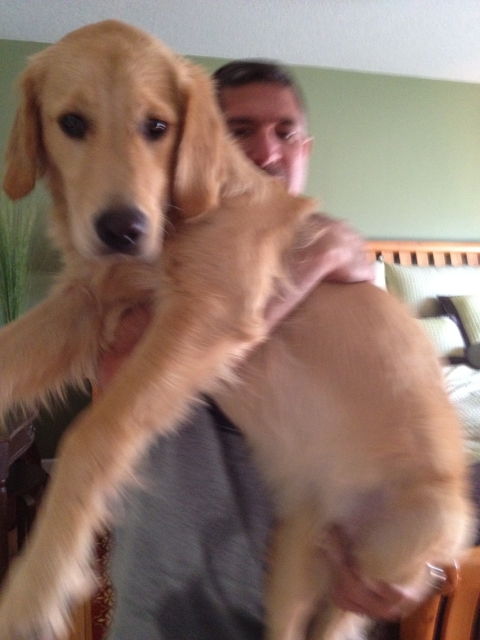 My 7 month golden retriever
Question
Mako
Hi,
My 7 month golden retriever pu
My 7 month golden retriever
Question
Mako
Hi,
My 7 month golden retriever pu
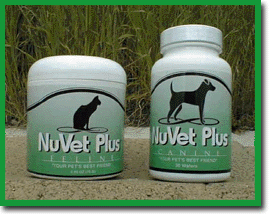 Anxiety? golden retreiver ; valerian time release canine dosage :
QuestionMy Golden is panting, pacing and pawing excessi
Anxiety? golden retreiver ; valerian time release canine dosage :
QuestionMy Golden is panting, pacing and pawing excessi
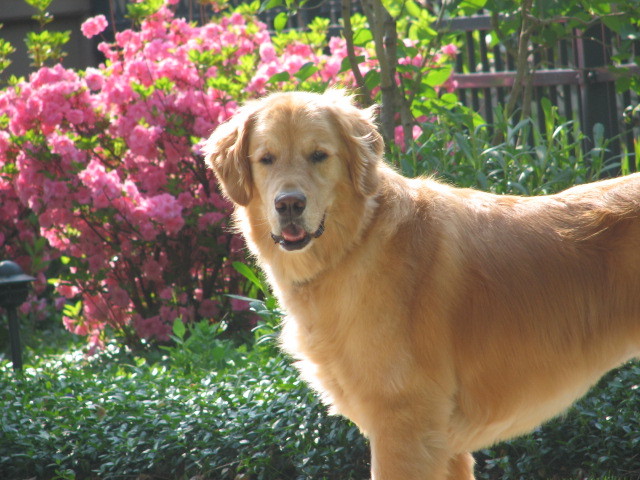 Goldens and cancer
Question
Duke
I just read your response to a women who
Goldens and cancer
Question
Duke
I just read your response to a women who
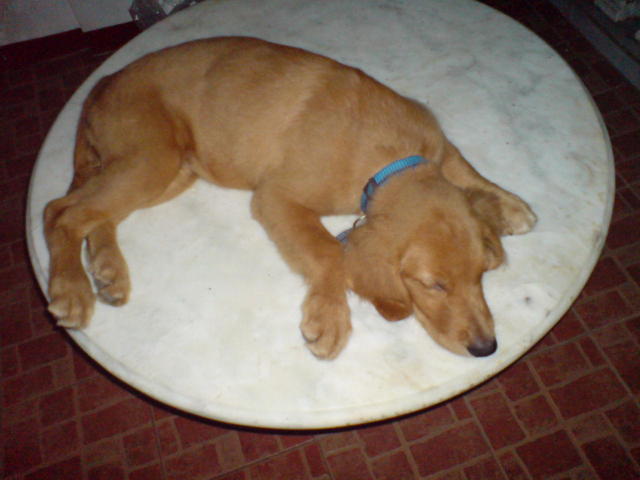 Golden retriver got sick and wont eat regularly
Question
Pauline - our golden r
Hi. We have a very heal
Golden retriver got sick and wont eat regularly
Question
Pauline - our golden r
Hi. We have a very heal